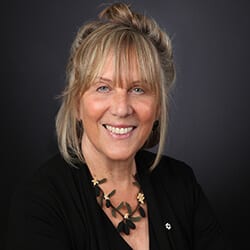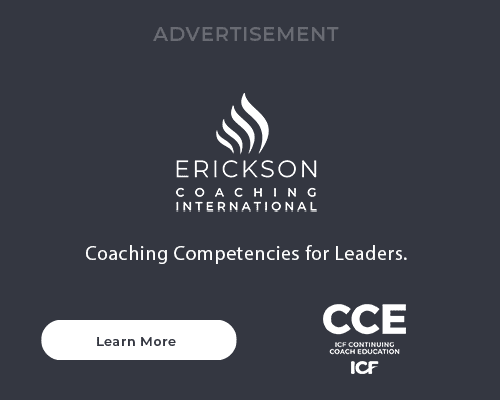Questions that Focus on a Way Forward
“Fear is the cheapest room in the house. I would like to see you living in better conditions.” —Helal Hafiz
Fear is often one of the debilitating variables that gets in the way of developing and achieving our professional dreams. This includes fear of failure, fear of success, fear of making decisions we will regret, fear of wasting time and money, and so on. Other factors that preclude action might have to do with habits we rely on to excuse inaction and challenges in articulating our real hopes. Then, there are our self-limiting beliefs about ourselves, such as things we believe we lack. Lack of confidence, of feeling supported, of motivation, of energy and of ambition are some of those “lacks.”
We know there are no easy answers about ways to make our dreams a reality and overcome the barriers we perceive and experience. This journey, however, may be facilitated when we use the coaching skill of powerful questioning to open the think tank that inspires action.
In this regard, here are four suggestions to consider, followed by examples of questions that will hopefully open the pathway. I invite you to consider and add what poet David Whyte calls “the question that has no right to go away.”
1) Identify What is Important to You
To determine what values drive and motivate you, please consider the following questions:
- Why did you choose to become a coach in the first place?
- What part or parts of being a coach do you enjoy most?
- What, more specifically, is it about that part or those parts that give you the highest degree of satisfaction and enjoyment?
- Which of your core values are reflected, so far, in your answers to the above questions?
- What other values are important to you to do the work to which you aspire?
2) Name the True Vision
To consider and articulate what you envision as the goal that you want to make happen:
- What is your real vision—the one deep in your heart?
- What makes this vision special and unique for you?
- If you are not able to articulate your vision (just yet), what are the sorts of goals you contemplated for yourself when you entered the field of coaching that are not yet realized?
- What impact do you want to have on your clients? On those who live and work with you? On our field?
- What will you celebrate about you when you achieve this goal?
3) Articulate Your Challenges to Moving Forward
Here are some questions that help confront fears and other variables that might be precluding your movement forward:
- What do you fear?
- What do you consider the biggest challenges to achieving your goal?
- What are your habits and self-limiting beliefs that are precluding you from moving forward?
- What strengths do you have that you aren’t fully using?
- How might you bring these strengths to your way forward?
- If you brought your strengths to your vision, what would that mean for you?
- What else do you need to overcome to make progress?
- What is stopping you from going after what you just identified as your need(s)?
4) Check Your Energy
Having confidence and a presence in your style of interacting, your charisma and your engagement with others is critical to advancing your goals. This series of questions asks you to look at how you show up:
- How might you describe the impact you have on others (clients and colleagues) with respect to your professional presence?
- What are your strongest characteristics regarding your energy and presence?
- In what ways are you most out of alignment—not coming across in ways you want to—at this time?
- What specifically do you want or need help with to improve how you and your energy are perceived?
- If you don’t know answers to any of the above questions, how might you find out? That is, who might you ask—someone you trust, and who cares about you—that would be willing to share their perspective?
We already know that, as Antoine de Saint-Exupéry wrote, “a goal without a plan is just a wish.” That is, we are aware as coaches helping our clients find a way forward—whatever the journey—requires committed action and follow-through. Besides careful and methodical planning, it helps to also reflect deeply on the driving forces pushing us back and pulling us forward. This means, among other things, changing habits that preclude action, honestly confronting our self-limiting beliefs and fears, checking our assumptions about ourselves, stopping any reliance we tend to have on “but” and “if only,” and remaining absolutely focused on who we want to be when we fearlessly arrive at our destination.




very comprehensive succinct and powerful. Thank you